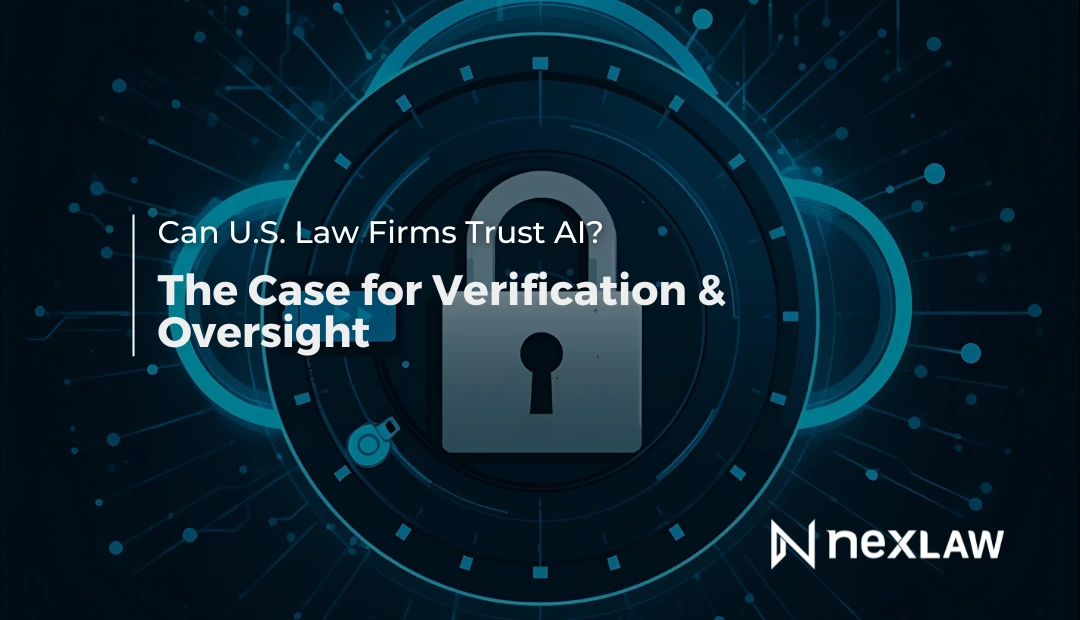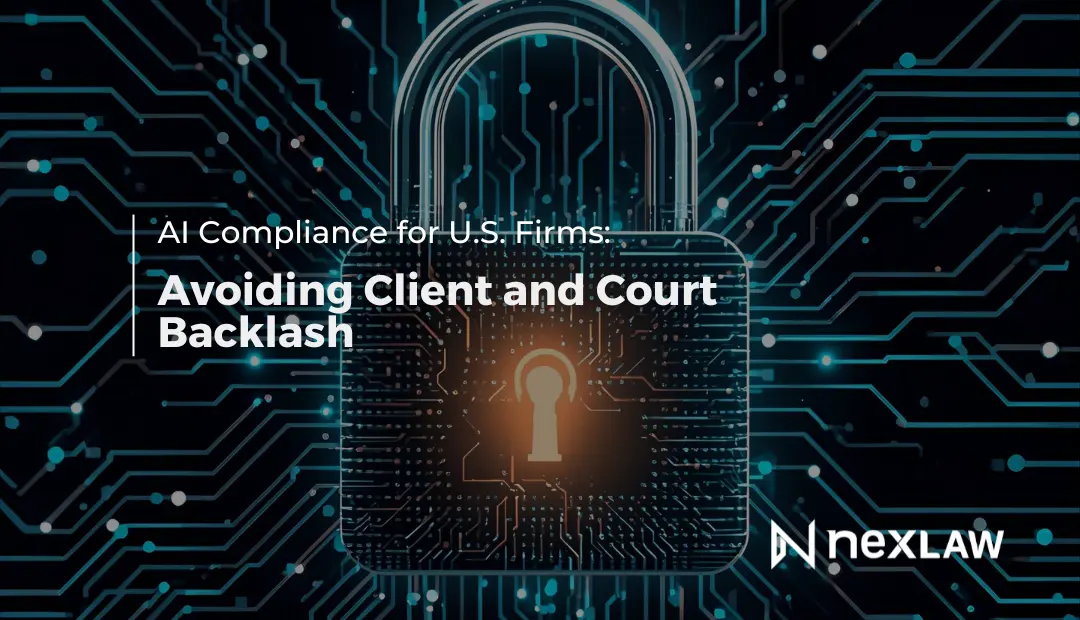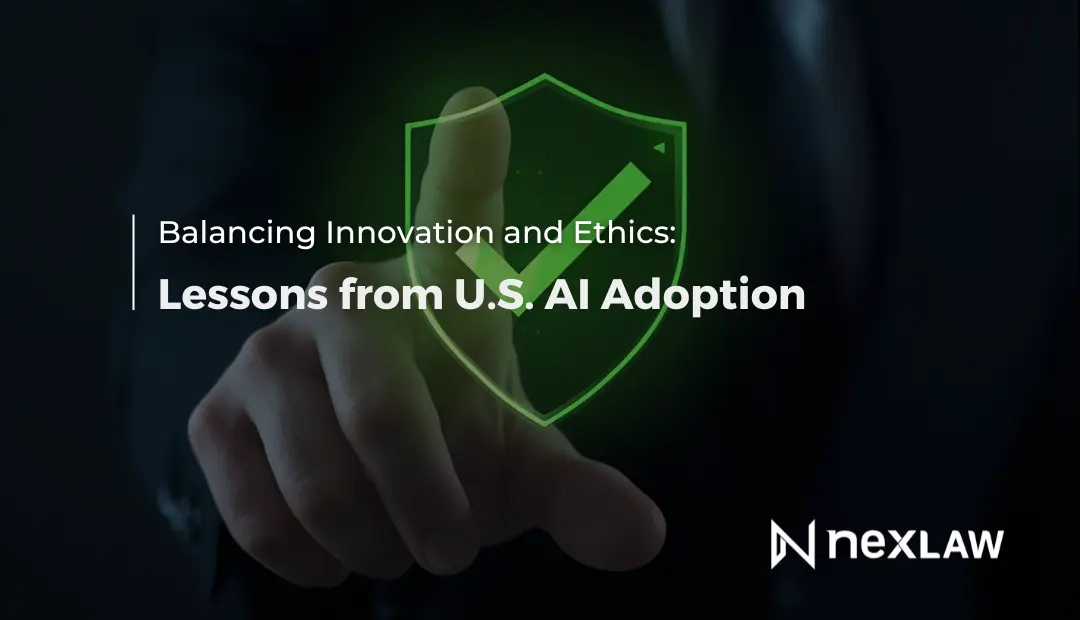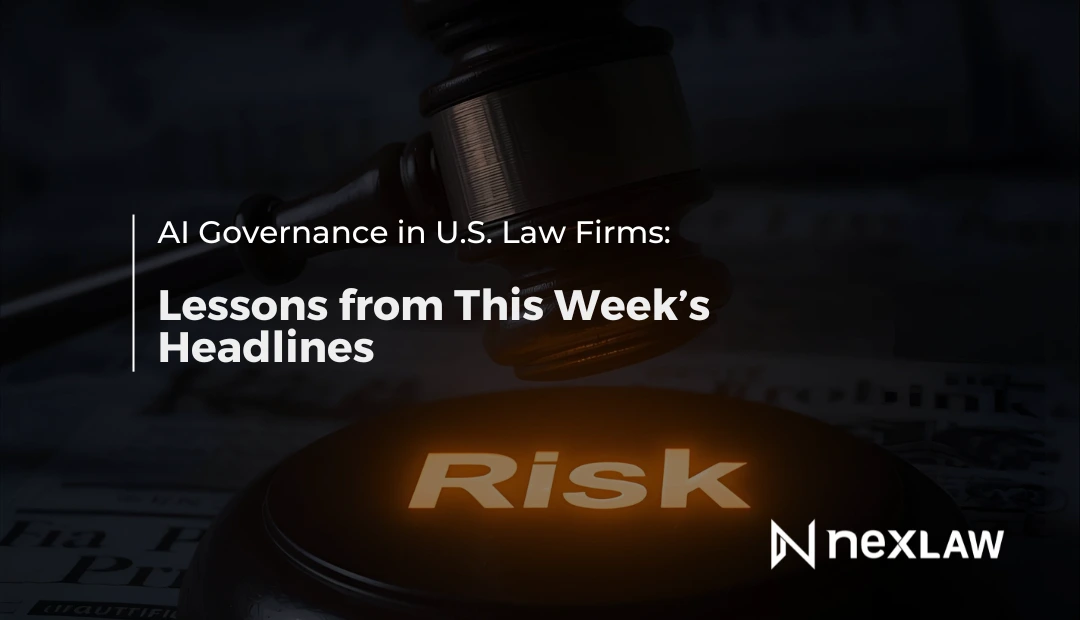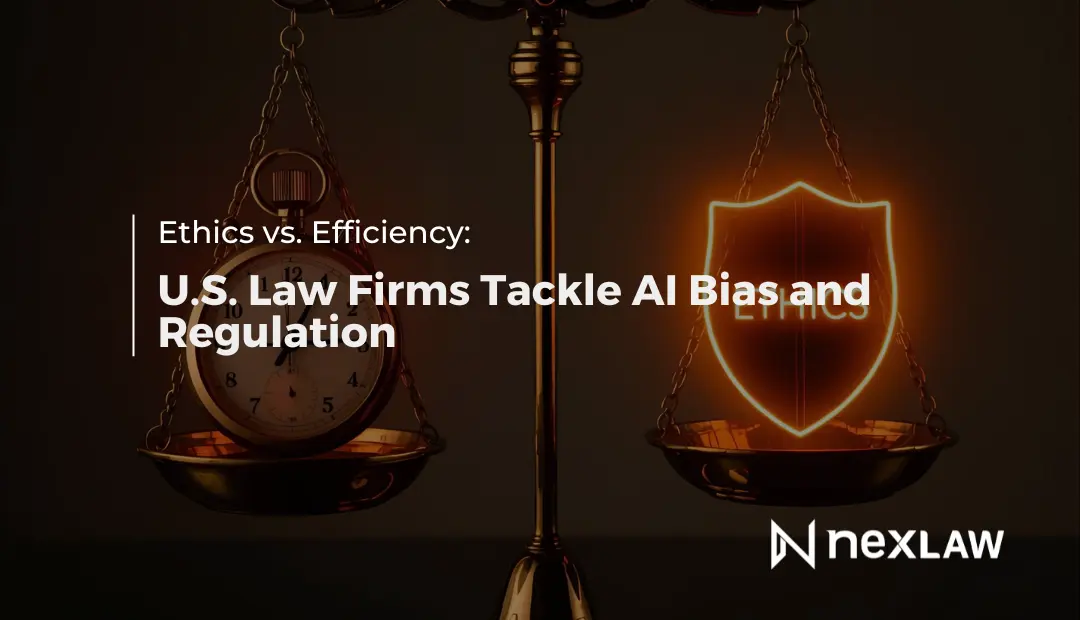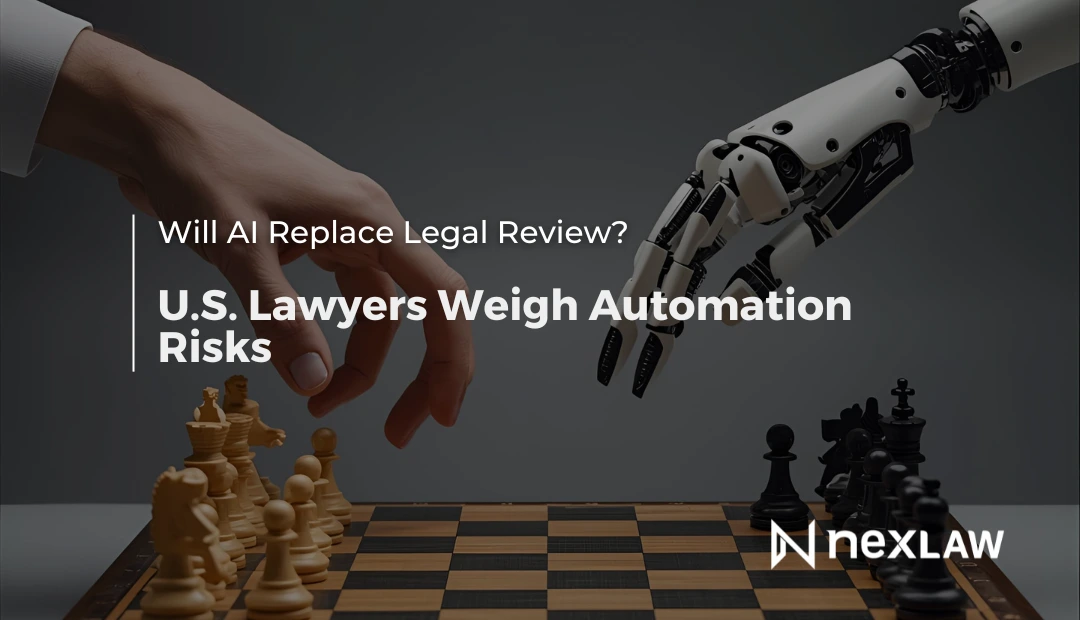Can U.S. Law Firms Trust AI? The Case for Verification & Oversight
AI in U.S. Legal Practice
Artificial intelligence (AI) is increasingly integrated into U.S. law firms to enhance efficiency, reduce costs, and support workflow management. Attorneys now rely on AI for tasks ranging from drafting pleadings and reviewing contracts to conducting legal research and generating case strategies.
Unlock Legal Insights Instantly!
However, AI adoption introduces risks, including potential inaccuracies, data privacy concerns, and ethical considerations. The critical question is: Can U.S. law firms trust AI? The answer depends on verification, human oversight, and choosing tools specifically designed for the legal context.
Understanding the Risks of General AI
General-purpose AI tools, like OpenAI’s ChatGPT, Anthropic’s Claude, or Google Gemini are widely used for drafting and summarizing text. While these models are powerful for general content, they were not designed for U.S. legal practice. Key limitations include:
1. AI Hallucinations
AI “hallucinations” occur when a model generates content that appears plausible but is inaccurate or fabricated. In legal contexts, this may include:
- Nonexistent case citations
- Incorrect legal interpretations
- Misdirected procedural guidance
Even a minor error can have serious consequences in legal filings, client advice, or courtroom strategy. For this reason, human review of AI outputs is essential.
2. Data Privacy and Confidentiality
Many general AI platforms operate in the cloud, storing user inputs to improve future models. For law firms, this creates potential confidentiality issues:
- Risk of exposing sensitive client information
- Possible violation of ethical obligations under state bar rules
- Challenges in complying with attorney-client privilege
Maintaining client confidentiality is a non-negotiable requirement in legal practice, making general-purpose AI risky for handling sensitive information.
3. Regulatory and Ethical Gaps
General AI tools are not tailored to U.S. legal ethical standards. The American Bar Association (ABA) issued Formal Opinion 512, emphasizing that lawyers:
- Must ensure AI outputs are accurate and reliable
- Must retain independent professional judgment
- Cannot rely on AI without human verification
Without specialized safeguards, AI use can inadvertently violate ethical responsibilities, exposing firms to professional or disciplinary risks.
Verification and Oversight Are Essential
To safely integrate AI, law firms must establish robust verification and oversight protocols:
Verification Protocols
- Confirm AI-generated citations, case references, and legal interpretations against verified sources.
- Use trusted databases, court filings, and official statutes for cross-checking.
Ongoing Training
- Train attorneys and staff on AI limitations, ethical responsibilities, and potential bias in outputs.
- Reinforce the principle that AI is a support tool not a substitute for professional judgment.
Oversight Committees
- Internal committees or designated reviewers should monitor AI workflows.
- Ensure all AI-assisted drafts, briefs, and client communications comply with ABA Model Rules and state bar guidance.
By emphasizing verification and oversight, firms can harness AI efficiently while maintaining professional standards.
Specialized AI Solutions: The Case for NexLaw AI
Unlike general-purpose AI, specialized legal AI platforms are purpose-built for U.S. law. NexLaw AI, for example, addresses the risks outlined above while enhancing legal practice efficiency.
Key Advantages of NexLaw AI:
- Verified Legal Data
- Trained on curated databases of U.S. statutes, case law, and regulations
- Minimizes hallucinations and ensures outputs are legally reliable
- Confidentiality Compliance
- Fully compliant with attorney-client privilege and state bar confidentiality requirements
- No sensitive client data is stored for model training or external use
- Ethical Alignment
- Outputs adhere to ABA guidance, including Formal Opinion 512
- Supports ethical and responsible AI integration in legal practice
- Litigation-Centric Tools
- Provides drafting, discovery analysis, and motion preparation tools tailored to U.S. litigation workflows
- Supports both attorney and pro se use efficiently
Comparing General AI and Specialized Legal AI
| Feature | NexLaw AI | General AI (ChatGPT / Claude / Gemini) |
|---|---|---|
| Legal-Specific Training | ✅ | ❌ |
| Accuracy for Case Law | High | Variable, prone to hallucinations |
| Confidentiality Compliance | ✅ | Limited |
| Ethical Alignment | ABA & State Bar Standards | No formal compliance |
| Litigation-Focused Tools | Comprehensive | Generic text generation |
This comparison demonstrates why law firms relying solely on general AI risk errors, data breaches, and ethical violations, while specialized AI offers a verified, safe, and practical solution.
Real-World Insights
- ABA Formal Opinion 512 (2023)
- Emphasizes human oversight of AI outputs
- Reinforces lawyer responsibility for ensuring accuracy and reliability
- AI Adoption Trends
- Reports indicate that a growing number of U.S. law firms are experimenting with AI to support legal research and document drafting.
- Firms adopting verification and specialized AI are better positioned to maintain compliance and reputation.
- Best Practices from Pilot Programs
- Law firms integrating AI with verification and oversight save time on research and drafting tasks while avoiding ethical pitfalls.
- AI tools that align with confidentiality and litigation workflows allow firms to improve efficiency without compromising standards.
Measurable Benefits of Specialized Legal AI
- Time Savings: Attorneys can reduce hours spent on repetitive research and drafting tasks.
- Accuracy: Verified AI outputs reduce errors in filings and client advisories.
- Compliance: Ethical and confidentiality standards are maintained automatically.
- Strategic Advantage: AI insights support data-driven litigation strategies.
Specialized AI adoption is not merely convenient—it is a strategic, risk-managed enhancement to legal operations.
Why Verification and Oversight Matter
Even the most advanced AI tools cannot replace professional legal judgment. Verification ensures that outputs are accurate, reliable, and ethical. Oversight provides accountability, ensuring:
- AI-generated work is reviewed before client submission
- Confidentiality and privilege are maintained
- Law firms remain compliant with ABA and state ethical standards
By combining verification, oversight, and specialized AI, law firms can safely leverage technology while protecting clients and reputation.
Conclusion
AI is transforming U.S. legal practice, providing efficiency, insight, and strategic support. However, general-purpose AI tools carry significant risks, including hallucinations, confidentiality exposure, and ethical gaps.
For law firms, the safest approach is clear:
- Prioritize verification and oversight for all AI-generated outputs.
- Adopt specialized legal AI platforms, like NexLaw AI, built for U.S. litigation.
- Train attorneys and staff on ethical, accurate, and compliant AI usage.
With this approach, law firms can harness AI’s benefits confidently, improving productivity, accuracy, and client service while mitigating legal and ethical risks. NexLaw AI combines verification, confidentiality, and litigation-specific tools to provide attorneys with a reliable and compliant AI assistant.
Lawyers who embrace AI today are shaping the legal profession of tomorrow. Whether you’re part of a litigation team, a solo attorney, or a paralegal eager to expand your role, NexLaw makes it possible.
NexLaw is designed to help paralegals and attorneys—solo or from small and mid-size—prepare cases more efficiently, with greater accuracy and strategic insight.
Book a Guided Demo — See how NexLaw fits seamlessly into your practice and transforms your workflows with a quick walkthrough
You can either start your free 3-day trial (no card required) or 7-day trial (card required) to get hands-on right away — Explore NexLaw risk-free and experience firsthand how AI can enhance efficiency, accuracy, and client satisfaction.
*t&c applied | visit our website for more details
With NexLaw, the future of litigation is here - AI-powered, accurate, and accessible.
